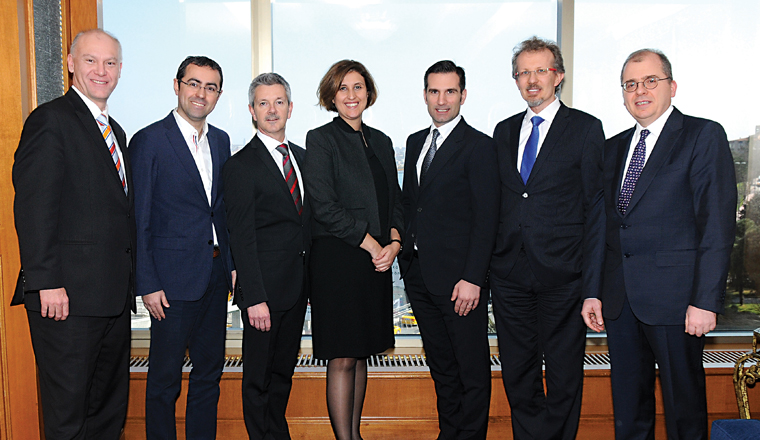Published: April 29, 2015
A group of six experts discuss the state of trade finance in Turkey, technological innovation and how to support the cross-border ambitions of their clients.
From its roots as a Phoenician trading post at the beginning of the 1st millennium BC, Istanbul has long been a centre of cross-border (and cross-continent) commerce. Today it continues to act as the focal point for east-west trade flows, but sophisticated mobile payments and the demand for data analytics present a very different picture when it comes to transaction banking needs. On the 24th of March, in sight of the Bosphorus and its good-laden ships, a roundtable brought together six local and international experts to discuss recent payment developments, technological innovation, and how banks can best support the cross-border ambition of their corporate clients.
Turkey: Innovation and Collaboration
At the table
Christopher Moore
Publisher, EMEA Finance (Chair)
Tolga Kocakalay
CFO, Dogus Planet
Ralf Schuster
Head of Banks Emerging Market, Helaba, Landesbank Hessen-Thüringen
Mehtap Yilmaz
VP, Cash Management and Trade Finance, Corporate Sales and Marketing, Akbank
Batuhan Tufan
SVP, Head of Financial Institutions, Garanti Bankasi
Ömer Uyar
CEO, Intertech
Cihat Takunyaci
Managing Director, Country Manager, BNY Mellon
From its roots as a Phoenician trading post at the beginning of the 1st millennium BC, Istanbul has long been a centre of cross-border (and cross-continent) commerce. Today it continues to act as the focal point for east-west trade flows, but sophisticated mobile payments and the demand for data analytics present a very different picture when it comes to transaction banking needs. On the 24th of March, in sight of the Bosphorus and its good-laden ships, a roundtable brought together six local and international experts to discuss recent payment developments, technological innovation, and how banks can best support the cross-border ambition of their corporate clients.
EMEA Finance: Let’s begin with an overview of Turkey’s trading landscape. With a foot in both the east and west, how is Turkish trade developing, how are corporate needs changing and how are banks adapting?
Cihat, BNY Mellon: Turkey is a very active player in global trade, in particular demonstrating strong demand for raw materials that can then be used to manufacture products for international export. Domestic appetite has also increased, having a positive effect on Turkey’s trade figures. As cross-border trade has risen, this has encouraged foreign banks to establish a physical presence in Turkey, or to do so via joint ventures with local banks. This in turn better-supports Turkey’s trade corridors, meaning the country has strong prospects and has embarked on a virtuous cycle of economic growth.
Turkey’s relative lack of funds is understood by market players so banks maintain strong balance sheets and careful management of their risk profiles, and corporates too are careful to maintain their own creditworthiness in order to be able to borrow funds on their own merits.


